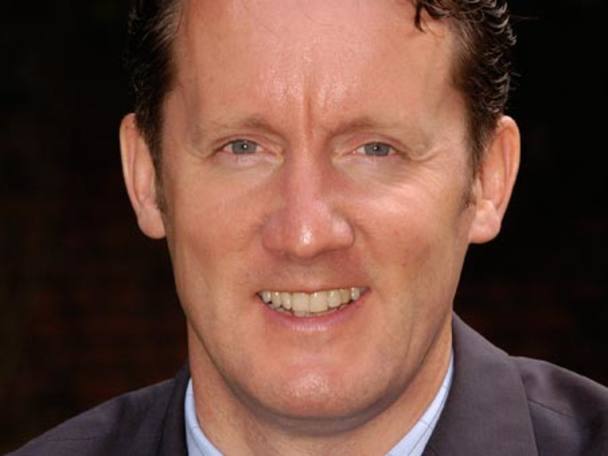Veteran smaller companies fund manager Peter Webb is back in business at the helm of the top-performing equity income fund over the past six months.
He made his name in the 1990s managing Eaglet Investment trust and then went on to found Unicorn Asset Management in 2000. There, he also managed a mid-cap income fund for Unicorn Asset Management alongside John McClure. However, he left the company in 2008 after it lost control of Eaglet following a period of poor performance "to spend time with family and manage his other business interests".
As at 31 October, Mr Webb's new project, the £2.28 million Elite Webb Capital Smaller Companies Income & Growth Fund (ISIN: GB00B63JD951) was the number one performing UK Equity Income Fund over one, three and six months, according to figures from Trustnet. Over the six months to 31 October, the fund delivered total returns of 20 per cent. This potentially makes it a competitor to the smaller companies income funds from Unicorn and Chelverton, although it is still early days and the fund is tiny.
"This is a small fund with big ambitions," says Mr Webb. "In a small way it's my new Eaglet. I'm trying to build a powerful fund for the long term.
"I thought I had retired but couldn't resist the opportunity. I'm not interested in coming second."
Until March 2013, this fund was managed by share tipster Tom Winnifrith under its previous name, the Elite T1PS Smaller Companies Income & Growth fund. However, the management of the fund was passed to Webb Capital following a restructure of T1PS' parent company, Rivington Street Holdings.
Prior to this the fund has delivered two years of losses to investors: -22 per cent in 2011 and -15 per cent in 2012.
Since taking on the full management of the fund on 1 April 2013, Mr Webb has almost completely overhauled the portfolio. He says: "The initial portfolio composition showed us that 42 per cent of the fund was in non-income bearing stocks. This has been reduced to 10 per cent in the legacy holdings that we have kept. We have also increased the average size of companies within the fund which improves the liquidity position and increases our ability to expand. However, we definitely favour the small end and aim to hold nothing that has a market capitalisation of more than £500m. Micro caps are not nearly as well covered and they are not as populated by professionals. If you buy it small you have a competitive edge. A dozen of the stocks in the portfolio are Aim stocks."
He says: "None of the new managers' investments have lost more than 20 per cent in value on book cost (just one that has been sold), but three of the previous manager's selections went bust (Ascot, MSGI and Silvermere) and Intandem (-85 per cent), Chamberlin (-46 per cent), Pan African (-90 per cent), Rivington Street (-86 per cent), Reach4E (-46 per cent) and ILX Group, now Progility (-42 per cent) would not have been good to hold for the entire period.
"There is only one stock that has performed above the best-performing stock purchased by us (irrespective of time scale and pro-rata returns) and that stock is 1Spatial (SPA), a company that has executed a corporate deal subsequent to handover. It is up 256 per cent."
Mr Webb is an optimist. He expects a re-rating of mid-cap income stocks to gather momentum and to filter down the market, leading to a revaluation of income-generating smaller capitalisation companies. "It's a nice situation for mid-cap income stocks. We may see a reversal of the trend for money to move from equity to bonds," he says. "The switch from bonds to equities could be so big. If the pendulum swings it could be a fantastic opportunity."
So what is the fund's selection strategy? Mr Webb avoids the many small caps that he says "are run principally for the benefit of their directors". Instead, he seeks "managers that are committed to shareholder value".
"Our defense is that someone would come and buy a holding if we didn't want it. Many of our companies are international. We're looking for strong cash generation and the potential for profits and multiple expansion. I'm creating a portfolio that can run with minimal changes for the next five to seven years. We will run winners."
In terms of sector favourites, Mr Webb likes stockbrokers, "because of the Retail Distribution Review (RDR) effect", and specialist finance, "because the banks are not in a position to do it".
He says: "Brewin Dolphin (BRW) and Charles Stanley (CAY) have looked at their business models post RDR and the positive changes have led them to change businesses. Plus, they have progressive dividend policies.
"Among specialist finance companies, Secure Trust Bank (STB) is growing exponentially. They may become 'the banks'."
The investments that Mr Webb has bought are on good yields going forward. He says: "Over the next few years we expect compound returns of 15-20 per cent from growth and dividends."
Elite Webb Capital Income & Growth Fund holdings and yields
| Stock name | 2013 yield (%) | 2014 yield (%) | Percentage of fund |
| Brewin Dolphin | 3.1 | 4.1 | 4.91 |
| International Greetings | 0 | 3.4 | 4.88 |
| Cello | 3.7 | 4.1 | 4.83 |
| Polar Capital | 2.9 | 4.1 | 4.81 |
| Finsbury Food | 1.4 | 2.3 | 4.77 |
| CareTech | 3.0 | 3.3 | 4.66 |
| Utilitywise | 2.3 | 3.3 | 4.66 |
| Charles Stanley | 2.9 | 3.8 | 4.24 |
| TLA Worldwide | 3.1 | 4.6 | 4.16 |
| Hogg Robinson | 2.8 | 3.0 | 4.10 |
| Getech | 2.4 | 2.6 | 3.83 |
| Galliford Try | 3.8 | 4.4 | 3.34 |
| Smiths News | 4.6 | 4.9 | 3.29 |
| Secure Trust Bank | 3.2 | 5.7 | 3.13 |
| VP | 3.5 | 3.7 | 3.05 |
Source: Webb Capital as at November 2013, based on Morningstar data.











